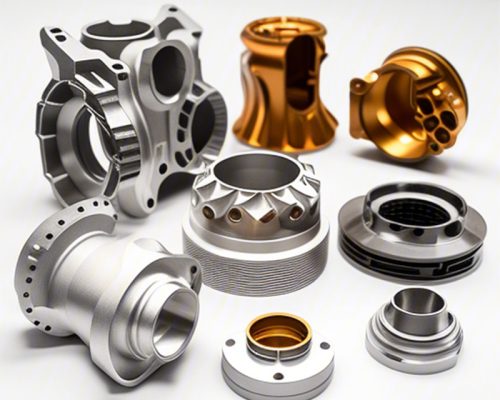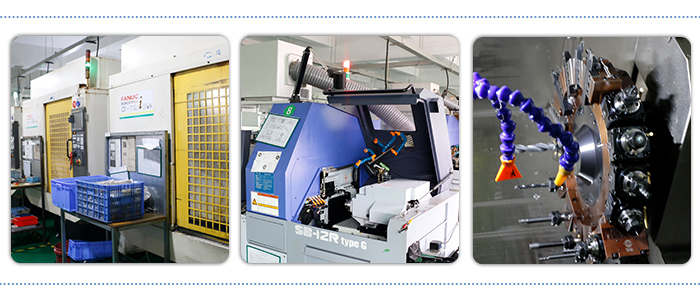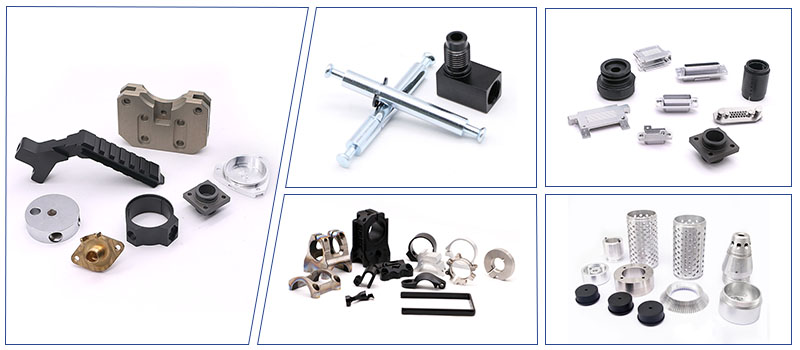As a seasoned professional in the CNC machining industry, I often encounter clients who wonder whether outsourcing their CNC machining services to foreign manufacturers is truly a reliable choice. Many businesses, especially those in the automotive, aerospace, and medical sectors, face this dilemma when seeking efficient and cost-effective solutions for their production needs.
In this article, I’ll share my experience and insights on whether CNC machining outsourcing to international manufacturers can truly be more reliable than working with local CNC shops. By exploring the advantages and challenges of both options, I aim to help you make a well-informed decision for your next project.
The Rise of CNC Machining Outsourcing
Outsourcing CNC machining services has become an increasingly common practice in recent years, especially as globalization and advancements in technology have made it easier to communicate and work with manufacturers around the world. But is it the right choice for your project?
While CNC machining outsourcing offers several potential benefits, it also comes with its own set of challenges. For instance, managing communication across time zones, dealing with cultural and language differences, and ensuring quality control are just a few obstacles that companies face when choosing overseas suppliers.
So, should you opt for a local CNC machining service or take your project abroad? Let’s dive deeper into this issue and evaluate the pros and cons of each option.
1. Advantages of CNC Machining Outsourcing
Cost-Effectiveness
One of the most compelling reasons companies choose to outsource CNC machining is cost savings. Many foreign manufacturers, particularly those in countries with lower labor costs, can offer CNC machining services at a fraction of the price compared to local providers. This can be especially advantageous for companies working on tight budgets or looking to scale production while minimizing expenses.
For example, when I was involved in an outsourcing project for a client in the automotive sector, we were able to reduce manufacturing costs by 30% by working with an overseas CNC machining partner. The savings allowed the client to reinvest in product development and expansion.
Access to Advanced Technology
Outsourcing CNC machining services abroad can also provide access to state-of-the-art machinery and technologies that may not be readily available locally. Certain international CNC machining companies have invested heavily in cutting-edge equipment and capabilities, enabling them to produce high-precision parts and products that meet strict industry standards.
If your project requires advanced materials or specialized manufacturing techniques, you may find that an overseas CNC machining supplier can provide more advanced solutions than your local options. This can be particularly useful for industries like aerospace, where precision and the ability to work with complex materials are essential.
Scalability and Flexibility
For businesses dealing with fluctuating production volumes, outsourcing CNC machining can offer greater scalability and flexibility. By working with a global partner, you can easily scale production up or down without having to invest in additional equipment or workforce. This flexibility can help you respond to market demands quickly and efficiently.
2. Challenges of CNC Machining Outsourcing
Quality Control Concerns
One of the most significant challenges when outsourcing CNC machining is ensuring that the manufacturer meets the required quality standards. When I’ve worked with international partners, maintaining consistent quality control can sometimes be difficult due to distance, language barriers, and differences in industry practices.
In some cases, clients have received parts that did not meet their exact specifications or required additional rework. This not only affects timelines but also the overall cost and reliability of the final product.
It’s crucial to work with reliable and reputable CNC machining outsourcing partners, and always request samples and conduct thorough inspections before large-scale production begins.
Communication and Time Zone Differences
Another obstacle that can arise with CNC machining outsourcing is managing communication. Time zone differences can cause delays in response times and lead to misunderstandings. Working across multiple time zones means that urgent issues might not be addressed promptly, which can impact project timelines.
When I managed outsourcing projects for clients, the time zone difference was often the most frustrating part of the process. Even with modern communication tools like email, messaging apps, and video calls, waiting for feedback can feel like a slow process, especially when the matter is time-sensitive.
To mitigate these risks, I always recommend establishing clear communication channels and regular check-ins with your overseas partner. This helps to ensure that everyone is on the same page and reduces the chances of delays.
Shipping and Logistics
Shipping and logistics are also key concerns when outsourcing CNC machining. Shipping parts internationally can introduce delays, add to costs, and expose your products to damage during transport. In some cases, the cost of shipping can outweigh the initial savings made by outsourcing, especially for bulky or fragile items.
Additionally, international shipping can bring its own set of complications, such as customs clearance and tariffs, which may result in further delays and unexpected expenses.
3. Advantages of Local CNC Machining Services
Faster Turnaround Times
Working with a local CNC machining provider typically results in quicker turnaround times. Since you’re located in the same country or region, you won’t face the same shipping delays as you would with international suppliers. If your project requires a rapid response, a local provider can often deliver parts much faster than overseas manufacturers.
Moreover, working with a local provider often means that you can have better visibility into the entire manufacturing process. I’ve personally found that the ability to visit a local CNC machining shop and communicate face-to-face makes problem-solving and adjustments much more efficient.
Greater Control Over Quality
When you work with local CNC machining companies, you can more easily monitor and control the quality of the parts being produced. With shorter shipping distances and fewer communication hurdles, the chances of receiving subpar products are significantly reduced. Additionally, you can perform inspections and quality control checks at various stages of the manufacturing process, which ensures that your final product meets your specifications.
For example, when I worked with a local CNC machining company for a medical device project, we were able to inspect prototypes in person and make quick changes before moving forward with production. This level of control is often more challenging to achieve when outsourcing internationally.
Stronger Customer Support and After-Sales Service
Local CNC machining companies tend to offer more personalized customer support and after-sales services. If issues arise with your order or the parts produced, it’s much easier to get in touch with the supplier directly and resolve the problem quickly. Having a local team to support you can reduce the chances of delays and miscommunication, providing peace of mind throughout the process.
4. Challenges of Local CNC Machining Services
Higher Costs
While local CNC machining services can offer many advantages, they often come with a higher price tag. Labor costs, equipment, and overhead are typically more expensive in developed countries, which can lead to increased production costs. If you’re working with a tight budget, these higher costs can be a significant factor in your decision-making process.
Limited Scalability
While local CNC shops can handle small to medium production runs effectively, they may face limitations when it comes to large-scale production. Some local manufacturers might not have the capacity or resources to scale up quickly or accommodate rapid changes in demand.
Conclusion: CNC Machining Outsourcing or Local Services?
So, what’s the better option: CNC machining outsourcing or local CNC services? The truth is, it depends on your specific needs, budget, and project requirements.
If cost savings and access to advanced technology are crucial, outsourcing might be the right choice. However, if speed, quality control, and personalized support are more important to you, then working with a local CNC shop may provide a more reliable solution.
At the end of the day, there is no one-size-fits-all answer. I recommend carefully weighing the pros and cons of both options and selecting the one that aligns best with your goals. And remember, no matter where you choose to get your parts manufactured, always prioritize clear communication, solid contracts, and strong partnerships.
Would you consider outsourcing your CNC machining project, or are you sticking with local providers? Let me know your thoughts!




